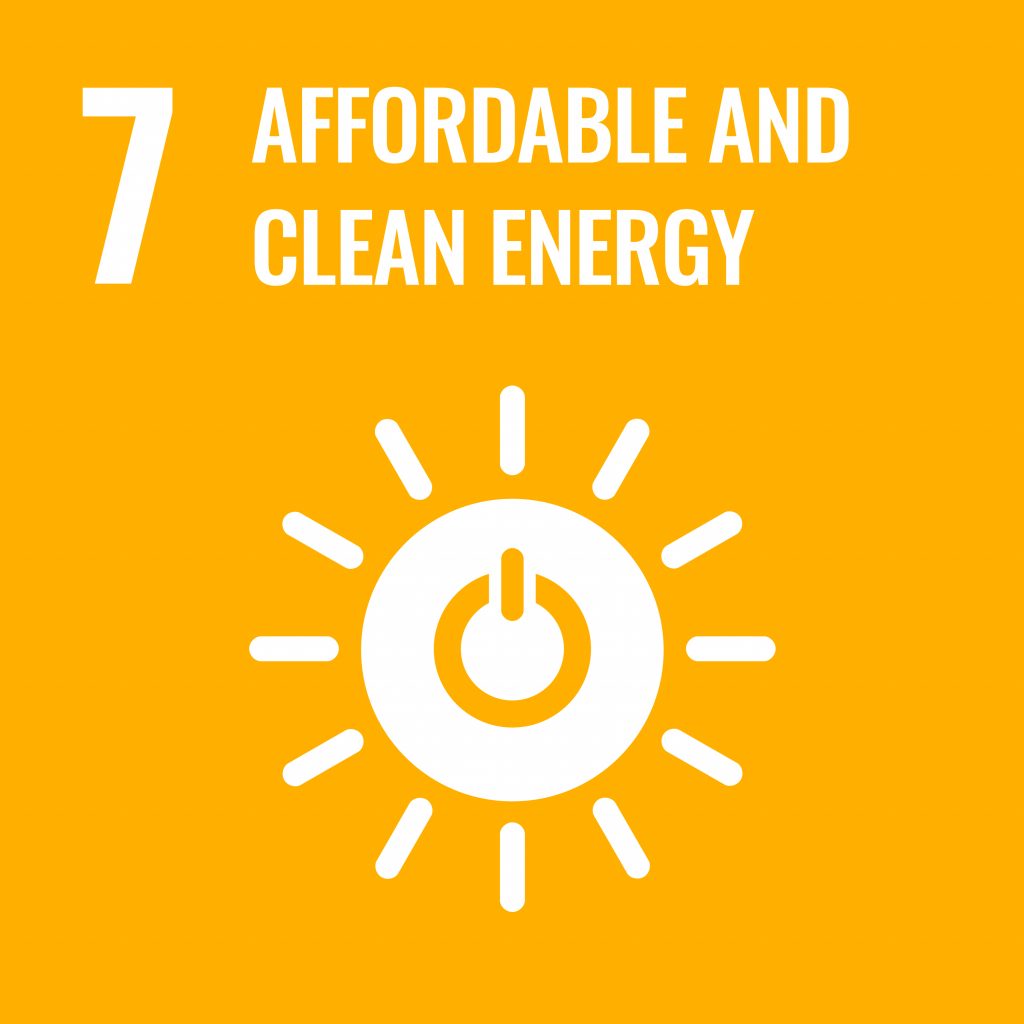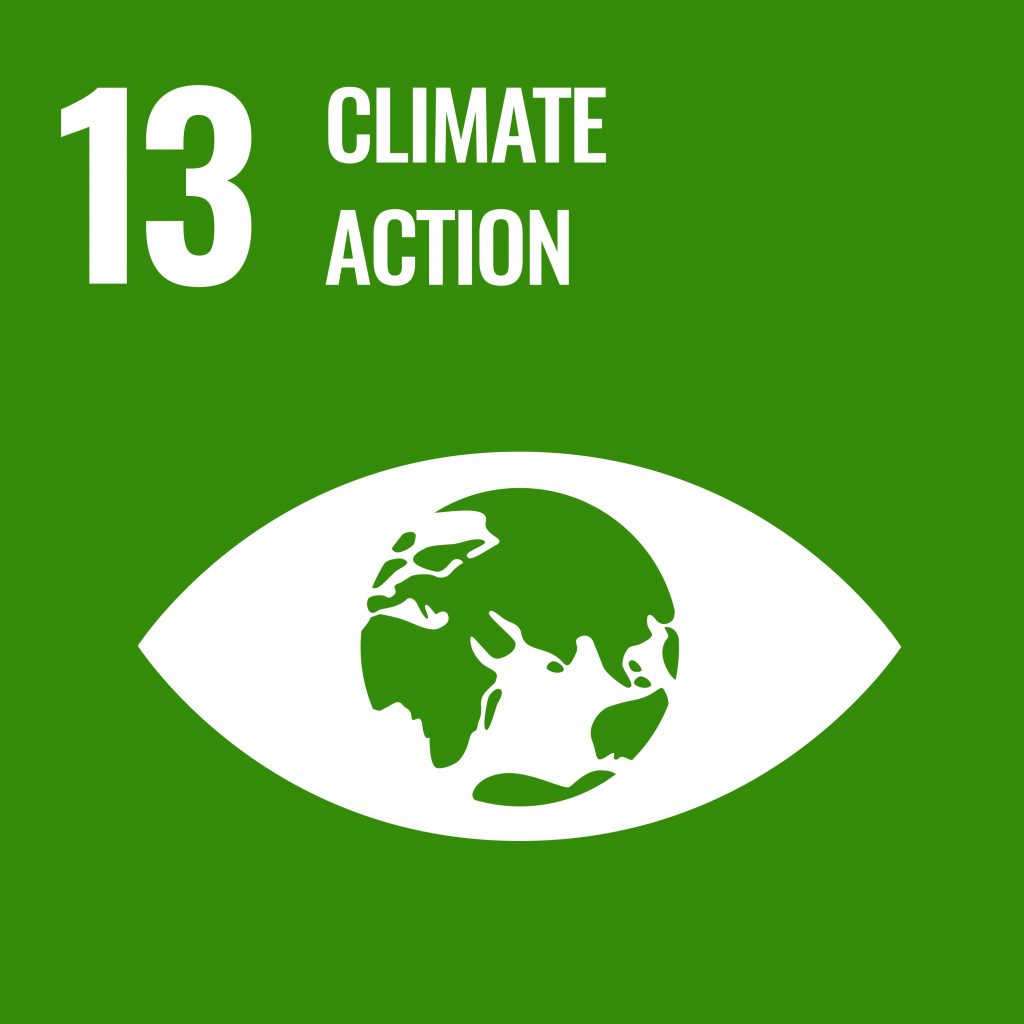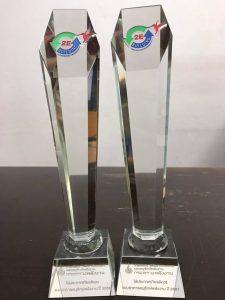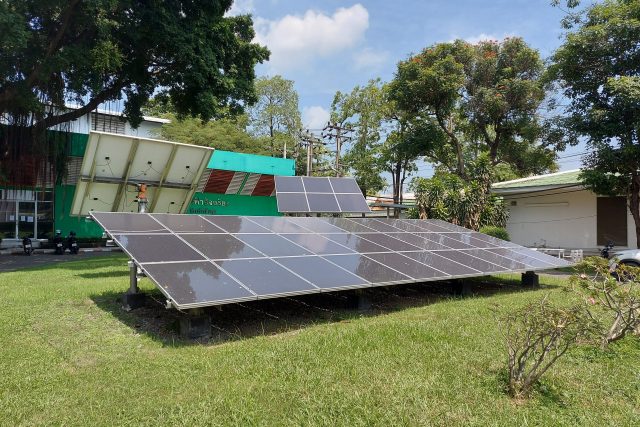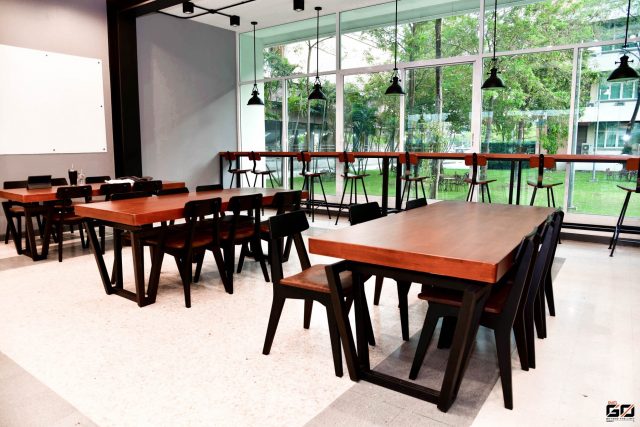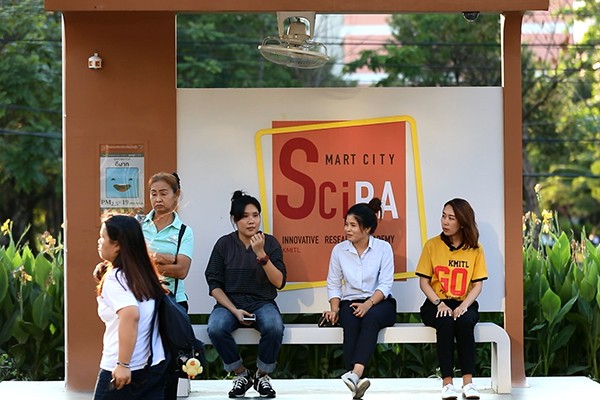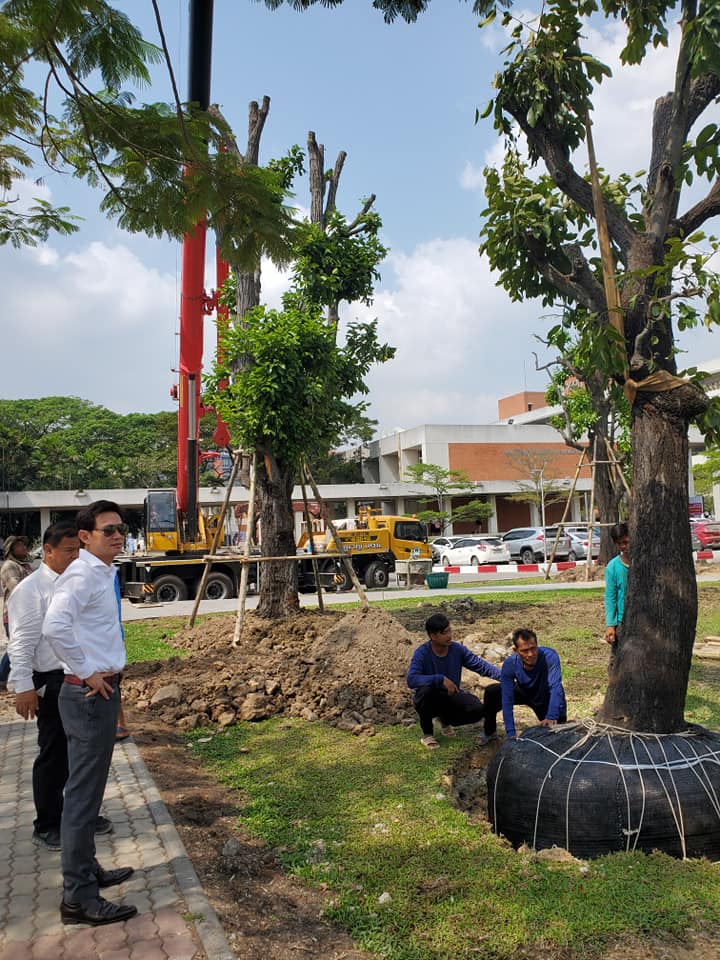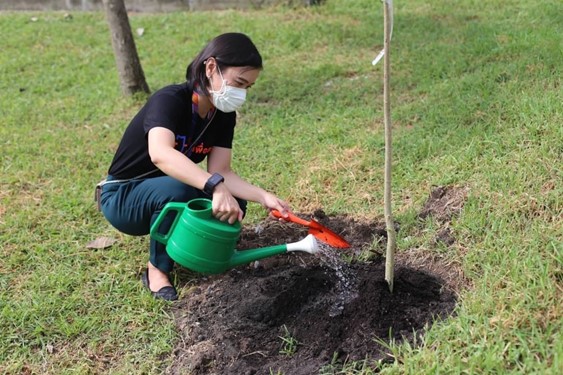Energy and Climate Change
The dramatically increasing impact of climate change and global warming are KMITL’s priority concerns. KMITL takes the responsibility for the environment and the balance- maintaining of environment and technology as the top important goals of the institute. To tackle the goal, we implement the project to develop the institute into sustainable green university.
KMITL's Green building standard's policy
KMITL’s awareness of the importance of energy saving and reducing environmental impact in every process, from buildings designing to buildings functioning. Therefore, the institute has implemented the policy for building standard for new established buildings. Standard for new established designed buildings must be ranked upper than silver-level of LEED’s green building standard. As a result, the KMITL’s Faculty of Industrial Education and Technology’s latest building designing and the “Hi-Tech” building’s designing were awarded 2E’s building award in 2018. 2E’s building design award was been established for energy conservative building design by department of alternative energy development and energy conservation. The building design was composed of many elements of green building such as energy efficient appliances, renewable energy’s building system, translucent wall for natural light utilizing, light shielding for sunlight controlling and green material of building.
Renewable energy usage
Since energy saving is one of the most important climate actions, KMITL has various and creative policies and campaigns for energy saving. It has implemented policies and campaigns to reduce energy consumption.
Design for reduce energy
KMITL understand important of energy responsibility, KMITL has reviewed energy to identify where energy wastage in yearly for planning for improve energy efficient of the institute.
Climate change
KMITL is aware of the effects of climate change
KMITL is aware of the effects of climate change and the importance of adaptation to the livelihood of communities and countries. The institute therefore has many projects in order to educate the community and be aware of the impacts. Thus, KMITL provides local education programs or campaigns on climate change risks
KMITL has a project to reduce carbon dioxide emissions
KMITL has a project to reduce carbon dioxide emissions, which is a KMITL bike project. KMITL is an institution’s bicycle loan project which is operated by a mobile application. Students and staff can register for use through the application for free, which reduces carbon dioxide emissions from motorcycles and other vehicles in institutions.
KMITL has a policy to plant dust trees
Tree planting On Chalong Krung Road In front of King Mongkut’s ladkrabang
Planting trees Although it may not be able to filter extremely small dust But help filter dust, soot, and smoke from the road and also help create shady for the campus Rom Yen is part In many projects To alleviate the problem of toxic dust
- Distribution of dust masks
- Dust alert through monitor
- Road cleaning
- Medical Preparedness
- Dustproof bus stop and
- Planting trees and managing traffic. The university does not allow cars to get close to the classroom. Worried about students inhaling toxic dust The problem of toxic dust can be solved if we all help each other.
1.5 tonnes of CO2 are to be absorbed by one click
Forests are being devastated as a result of the expansion of industrialization. According to Thailand’s Royal Forest Department, 216,000 square meters of forest will be lost per minute, equivalent to 40 football fields. Tree loss can result in global warming, climate change, soil erosion, flooding, and a variety of other issues. Green space is undeniably essential to our survival, for it contributes significantly to the carbon cycle.
As a consequence, King Mongkut’s Institute of Technology Ladkrabang (KMITL) via the Office of Physical Resources and the Environment, KMITL launched “We Grow Together”, an environmental project that involves the planting of Kae-sad tree, the emblem of KMITL.

KMITL provided collaboration research services for local industry and local communities
to improve their energy efficiency and clean energy.

PEA Volta
KMITL and PEA jointly develop a charging station with the development of the PEA Volta application to promote the use of electric vehicles. For public transportation, KMITL and PEA design Electric bus.

Renewable Energy Technology Club & Harn 2 club
KMITL supports student clubs that provide knowledge of energy efficiency usage and conserve energy for communities such as Harn 2 Club (Cut Energy Use in Half)
